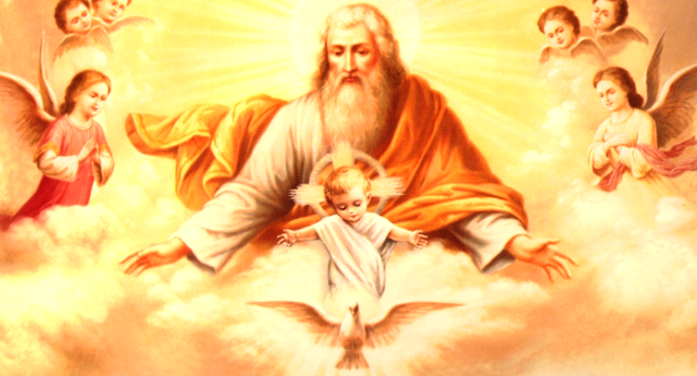When Our Lord declared Himself to be the Son of God and One with His Heavenly Father, His enemies made attempts on His life. When He told His Apostles that He must be crucified and be a suffering Son of Man, they quarrelled either with Him or among themselves for the first place in His Kingdom.
Divinity and a suffering Saviour were both repugnant to unregenerated men. Divinity, because man secretly, wants to be his own God. Suffering, because the ego cannot understand why a seed must die before it springs forth unto new life. The Son of God became a stumbling block when He humiliated Himself to the human level, taking on Himself the form and habit of man. It is hard on the intelligentsia to believe that Greatness can become so little. On the other hand, the Son of Man became a scandal when He took upon Himself the weakness and even the guilt of man and did not use His Divine power to escape the Cross.
Several attempts were made on His life. Most of them were during one or other of the great feasts, but always after He had proclaimed His Divinity. The first attempt was in Nazareth. Every man has his own country, his own home, and his own kindred. It is among these that he would be loved and remembered. But as Our Lord hastened to His cross. His speed was quickened by the rejection of His Own home town.
One fine morning Our Blessed Lord goes to the Synagogue, where He had often been as a child and as a young man. Very likely when He entered the synagogue this time, the news of the miracles at Cana and at the Jordan where the heavens proclaimed His Divinity had already brought the people to a high pitch of expectancy.
Then Jesus, armed with the power of the Spirit, returned to Galilee. Reports about him spread through the whole country side. (Luk. 4:14)
In the synagogue, He was given the Book of Isaiah. The particular prophecy which He read dealt with the suffering Servant of God.
The spirit of the Lord is upon me because he has anointed me. He has sent me to announce good news to the poor, to proclaim release for prisoners and recovery if sight for the blind; to let the broken victims go free, to proclaim the year of the Lord’s favour. (Luke. 4:18,19)
This passage is very familiar to the Jews. It was an Old Testament prophecy concerning the release of the Jews from the Babylonian captivity. But He does something unusual. He takes this text woven out of the Exile, and wraps it around Himself. He changes the meaning of the “poor,” the “enslaves”, and the “blind”. To the Jews, they were those who had no grace and lacked union with God. The “blind” were those who had not yet purchased true freedom from sin. He then proclaimed that all these centered in Himself.
But above all, He declared the Jubilee. The Mosaic code made provision for every fiftieth year to be one of special grace and restoration. All debts would be remitted; family inheritance which had, by the pressure of time, been alienated are restored to their original owners. The slaves were to be restored to freedom. It was a divine safeguard against monopolies kept family life in tact. The jubilee year was to Him a symbol of His Messianic appearance. He proclaimed it because he had been anointed with the Spirit to do so. There were to be new spiritual riches, a new spiritual light, a new spiritual liberty, all centring in Him- the Evangelist, the Healer, the Emancipator. All who were in Him- the Evangelist, the Healer, the Emancipator. All who were in the synagogue had their eyes fixed on Him. Then came the startling explosive words: Today in your very hearing this text has come true (Luke 4:21).
He knew they were expecting a political king who would throw off Roman domination. But He proclaimed redemption from sin, not from military dictatorship. In this way alone they must expect the prophecy of Isaiah to be fulfilled.



